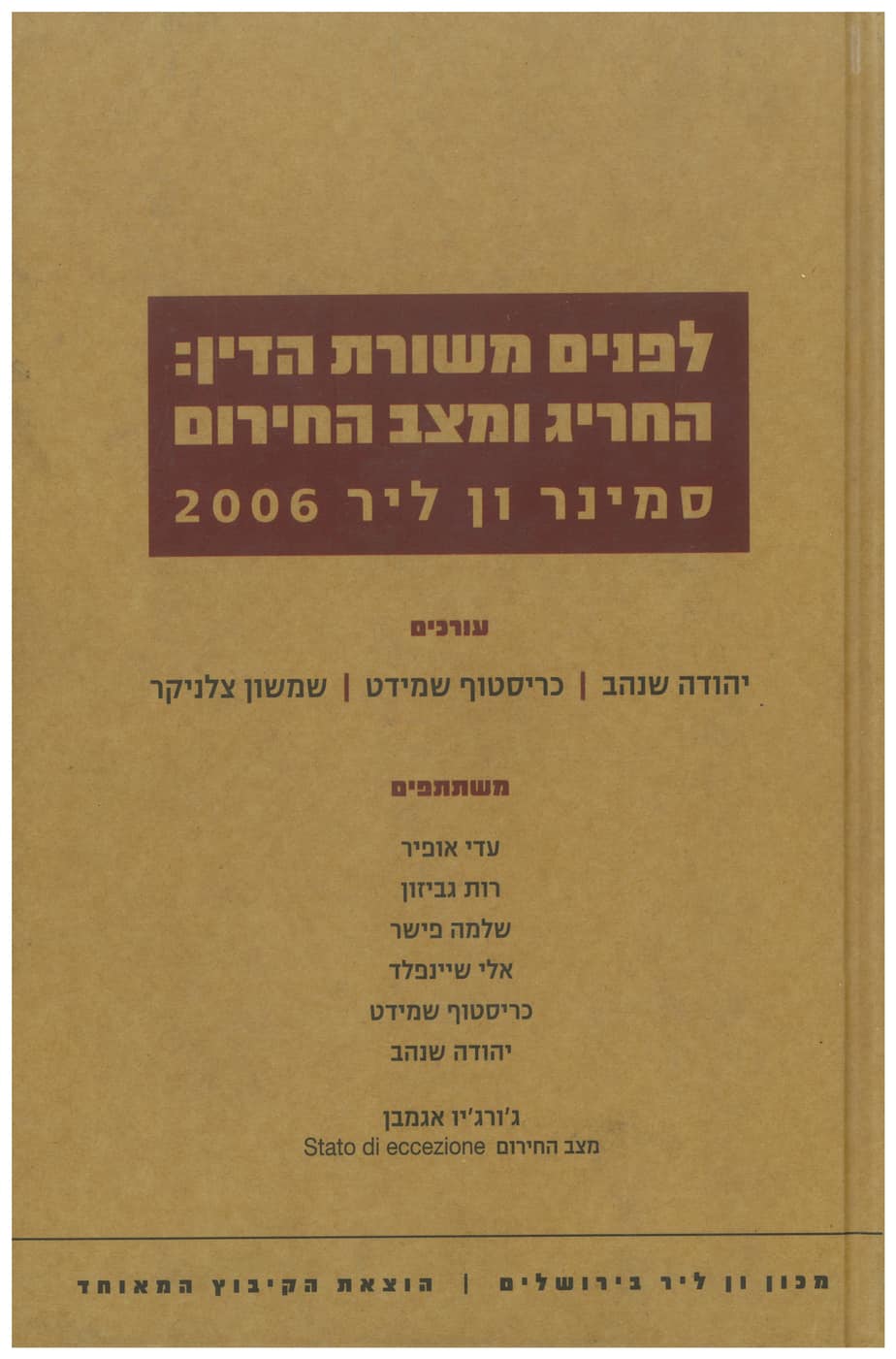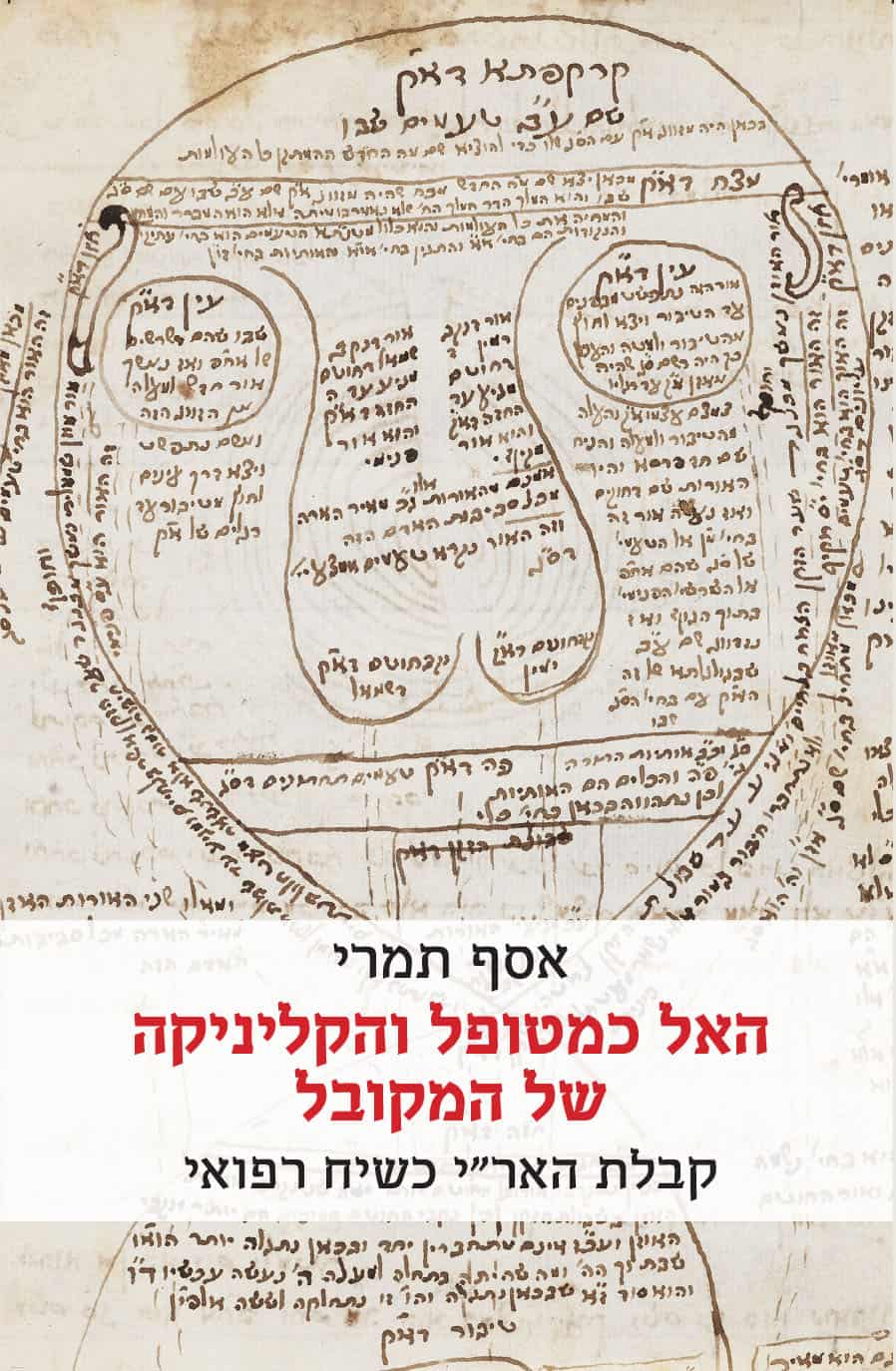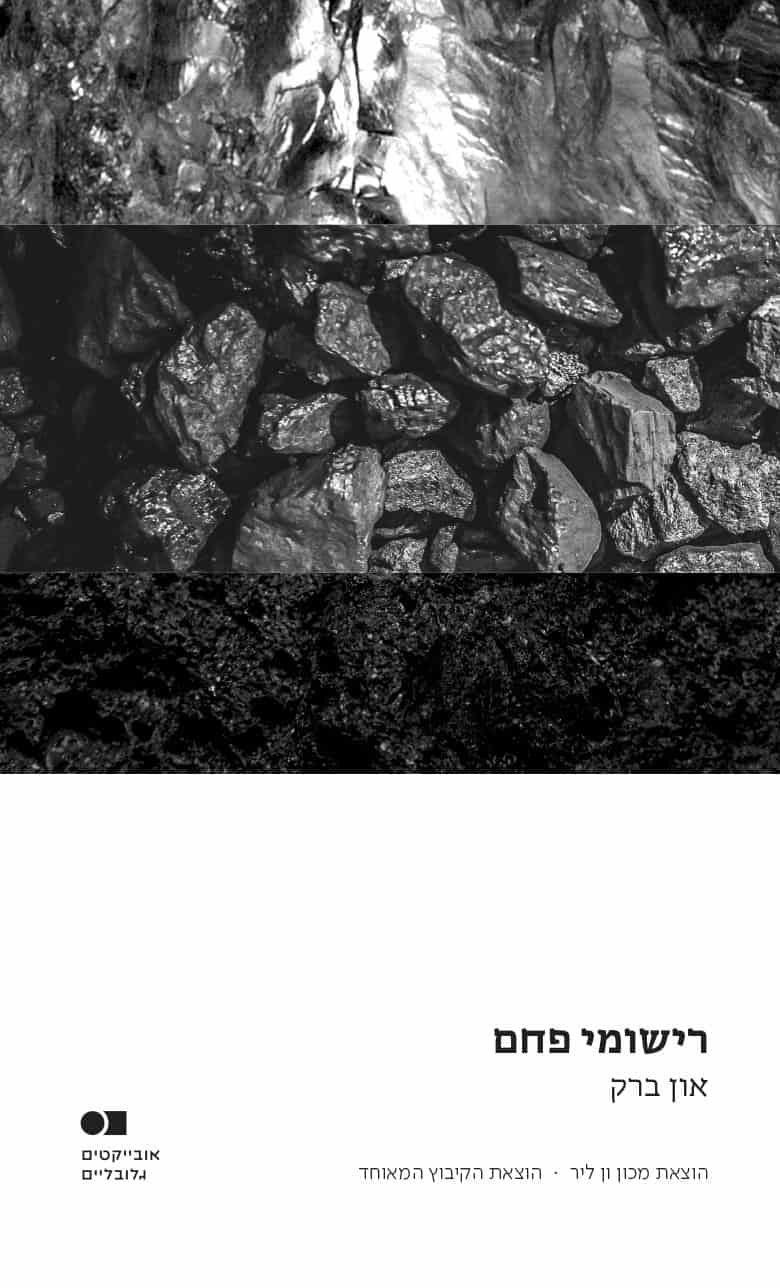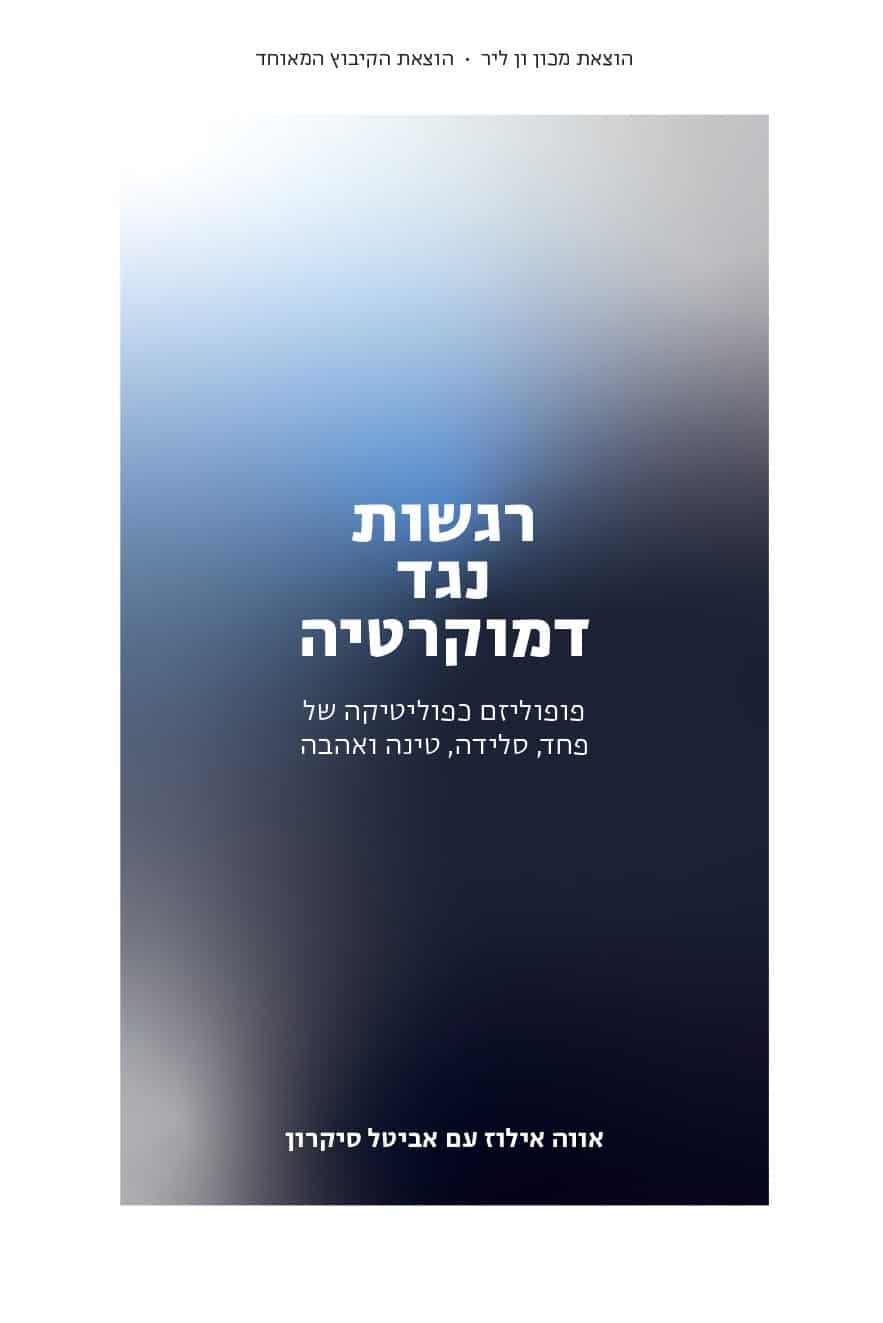State of Exception and State of Emergency
| Edited by | Shimshon Zelniker, Yehouda Shenhav, Christoph Schmidt |
| Publisher | Van Leer Institute Press and Hakibbutz Hameuchad |
| Language | Hebrew |
| Year of Publication | 2009 |
| Series | Theory in Context Series |
In a single traumatic moment, the events of September 11, 2001, exposed the repressed connection between liberal democracy and a state of emergency. In response to the threat of terror, the Western nations entered a new era of security activism that was turned inward toward their societies and military activism that was supposed to impose a democratic order on Islamic countries. Under these circumstances, the state of emergency became the continuing work paradigm of Western governments. However, the current wave of states of emergency has created old-new rules that present a challenge to cultural studies with regard to the legal, political, philosophical, and theological meaning of the state of emergency. Where politicians took advantage of the effect of the trauma to make the security paradigm the dominant paradigm, new critical analysis of the ramifications of a state of emergency on the world order is required.
The problem of the “state of exception” and the state of emergency, and the connection between them and political theology and world history, were discussed in a lecture series at the Van Leer Seminar in 2005–2006, of which this book is the outcome. The six lectures included here seek to formulate the variety of relations between theology and politics and to present the issue of the state of emergency and the state of exception from the perspective of various disciplines.
All the lectures included converse with Italian philosopher Giorgio Agamben’s work titled Stato di Eccezione, which appears here for the first time in its entirety in a Hebrew translation, by Manuela Consonni and Dvir Tzur.




